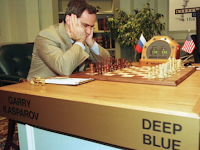This week I'm leaving IBM-Research and moving on to my next chapter.
I joined IBM-Research at the age of 28 holding an M.Sc and with 3 years of experience in the industry.
I was already settled in my personal life - happily married with two children and living in a permanent home. IBM-Research gave me the present of feeling settled in my professional path as well by providing me the title of "Researcher" in a company that I admired for its rich past of innovation and values: professionalism, excellence, open-mindedness, diversity and many more... I was honored to be part of it. During this period my third child was born. Being a career-mother was not an easy task, and IBM was there for me by giving me total trust and flexibility in time and space allowing me to excel in both roles. I remember nights where I was holding my baby in one hand, nursing him, while programming and chatting with other colleagues with the other hand. Speaking in front of student girl visitors while carrying my baby with a carrier on me. This baby boy is celebrating 3 years exactly today.
I got a lot from IBM. Being involved with the most interesting and fascinating projects, the state of the art technology and non-stop innovation with a lot of responsibility. Everything was moving fast to a large scale. When a POC (proof of concept) developed by 2-3 researchers in our laboratories went well, the next quarter we had a customer and a fleet of developers to help us go through production process. Managing meetings with Chinese engineers in the mornings, Americans in the evenings and sometimes everyone together at noon (Israel is located in between). Working with the best experts inside IBM - Distinguished Engineers, Senior Technical Stuff Members, Architects, Product Managers, getting consultation from other research groups and colleagues researchers with different expertise etc... and partners outside IBM - working directly with the CTOs and the CEOs. The next quarter we worked with data from more than 3000 stores all over the USA. Producing reports and analyzing data. Even with all this action we found time to write down some of our work as patents and for a research paper. I had the privilege to fly around the world and present our research.
And if I thought that I saw everything, I didn't know what was coming the following year...
When this research project came to an end, IBM gave me the opportunity to team up with a different group and acquire new skills. As I wanted to be involved more in "heavy" research projects, in high level algorithms, in AI domain and projects that make the world a better place - I joined an ambitious long-term exploratory grand challenge project, more than 40 researchers in Israel (many more overseas) working together fighting cancer by building the next generation of radiology assistance. I have worked with research experts in deep-learning, machine learning, computer-vision, NLP, data science, UX, reasoning, cloud platforms, medical doctors and more... to build a mega-POC (see also:
Eyes of Watson).
I also had the honor of leading (as a secondary researcher) a major research project with a leading healthcare provider in Israel, handling medical files of thousands of patients.
It was a great pleasure working at IBM. I have had the chance to be part of three different research departments: Big-Data Analytics, Mobile & IOT and Health Informatics. It allowed me to get to know IBM-Research very well, to be exposed to hundreds of "startups" (since every research group is actually developing something new), to meet a lot of talented and brilliant people from which I have learnt a lot, to create friendships and mentoring relations - much of my success is thanks to them. I attended the best research and engineering courses. Visited interesting conferences. Was a member of the patent review board. Part of the ambassadors group. Represented IBM on stage in volunteering activities. Wrote on behalf of IBM and received a lot of respect just because I'm a researcher in the prestigious "IBM-Research" unit.
For me, the peak of all this fun was - participating in exploring the IBM-Next-Grand-Challenge.
I wrote a proposal, pouring all my passions, visions and beliefs into it. This proposal was chosen to represent Israel. It was unbelievable to me that IBM, a company of 400,000 employees, gives equal opportunity to each one of its researchers to design the future of the company and to have a real influence on the company's direction and as a result - the whole world's.
Next week I will join the new Data Science Institute at Bar-Ilan University as a PhD student, combining Computer-Science with Psychology, two of my passions. It is going to be fascinating!
Goodbye IBM. You have been good to me.








